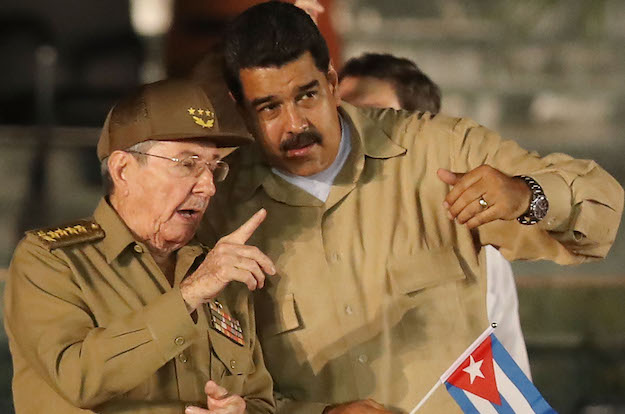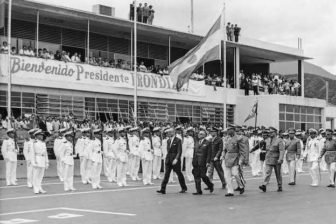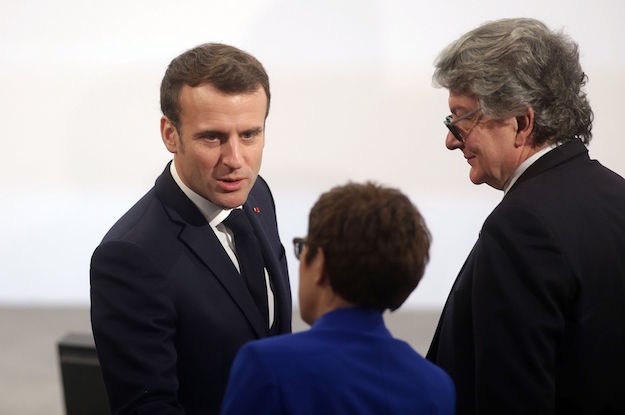The ineffectiveness of Latin American leaders in promoting a transition to democracy in Venezuela today has a lot to do with their lack of commitment to a democratic transition in Cuba in recent years.
There is no question that Venezuela is a dictatorship. While there were reasonable arguments in favor of defining Venezuela as an ill-functioning democracy until a few years ago, when the Nicolás Maduro regime stripped the democratically elected legislature of its powers in 2017, Venezuela unequivocally descended into authoritarian rule. Unfortunately, not being democratic is not necessarily a problem when it comes to having good relations with other countries in the region.
In theory, democracy should be the only game in town. Since signing the Inter-American Democratic Charter on Sep. 11, 2001, Latin American governments have had a mandate to protect democratic institutions in the region. However, the Democratic Charter has been ignored and overlooked several times in the past few years.
After former Honduran President Manuel Zelaya was forcefully removed from office in June 2009, there were profound disagreements among Latin American leaders about how to deal with the situation. Alleging that Zelaya himself was attempting to subvert the democratic process, the right-wing opposition succeeded in pushing him out with a Supreme Court resolution – though Zelaya was removed from office by force and sent into exile. Several left-wing leaders in the region – then led by Venezuela’s Hugo Chávez – attempted to transform the Democratic Charter into a political tool to blast the United States and advance the now quasi-defunct Bolivarian Alliance. Regardless of who was right in the response to Zelaya’s ousting, the most worrying lesson from that crisis was that defense of democratic rule in the region is often conditioned on the ideological leanings of a given Latin American government.
The Democratic Charter has also been overlooked when dealing with Cuba. In 2009, at the Organization of American States’ meeting in San Pedro Sula, Honduras, the 34 member countries unanimously agreed to pave the way for Cuba, a country ruled by a dictatorship since 1959, to be admitted back into the community of Latin American democracies. The initial resolution that had banned Cuba from the OAS also established that the country would be allowed back in after a transition to democracy. The problem back then was that many of the members that expelled Cuba were not democratic either. But the 2009 resolution by the OAS showed that Latin American democracies were willing to relax the strict adherence to the principle of democracy in Latin America.
It is true that reasonable people can question the effectiveness of the U.S. embargo on Cuba. Moreover, many people committed to democracy are in favor of engaging in talks, negotiation and even cooperation to ease a transition to democracy – even when dealing with the 60-year-old Cuban dictatorship. Yet, the indecisive position Latin American democracies have maintained on how to promote democracy in Cuba has been symptomatic of the lack of a firm commitment to denounce dictatorships and authoritarianism in the region. Many Latin American leaders would be amenable to accepting Cuba back in the community of nations regardless of whether there is a transition to democracy on the island. Many Latin American leaders regularly visit Cuba and fail to advocate for the respect of human rights or even meet with opposition civil society groups in the island.
Not surprisingly, this lack of consistent behavior in favor of a democratic transition in Cuba in recent years has made it difficult for Latin American democracies to now speak with a unified voice in favor of the restoration of democratic rule in Venezuela. While some countries have joined the U.S.-led coalition to bring about the end of the Maduro regime (with some stepping back when Washington declined to rule out the use of military force), others have simply issued non-committal statements in favor of democratic rule. After all, if those countries have been able to look the other way when dealing with the Cuban dictatorship, it makes no sense to use a different standard when dealing with Maduro.
Unless Latin American countries demonstrate consistency in defending democracy as the only game in town – regardless of how long those authoritarian governments have been in power and regardless of their ideology – the governments of the region will not be an effective and influential voice in forcing the restoration of democracy in Venezuela or in preventing future democratic breakdowns elsewhere in Latin America.
—
Navia is a contributing columnist for AQ, a professor of liberal studies at NYU and a professor of political science at Diego Portales University in Chile.






